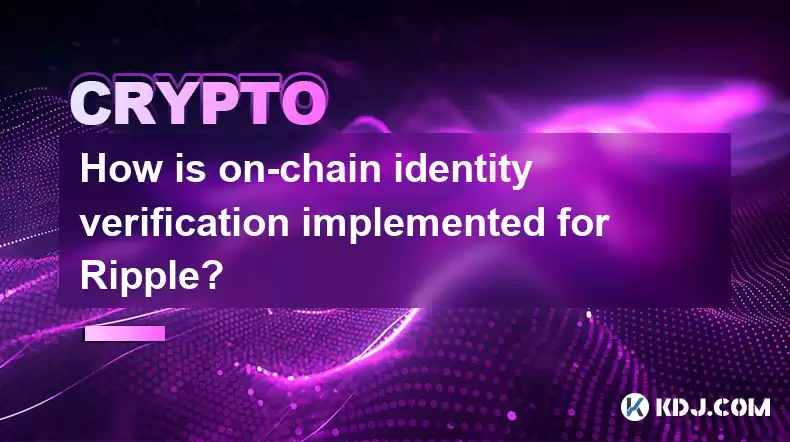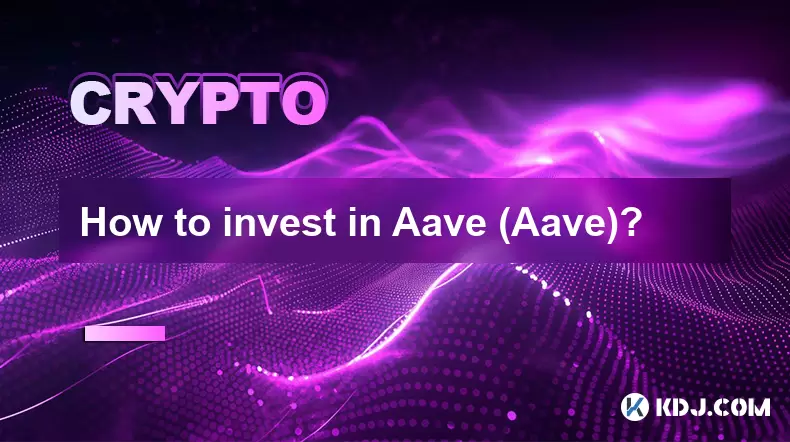-
 Bitcoin
Bitcoin $117300
1.99% -
 Ethereum
Ethereum $3884
5.89% -
 XRP
XRP $3.268
9.33% -
 Tether USDt
Tether USDt $1.000
0.02% -
 BNB
BNB $783.0
1.78% -
 Solana
Solana $173.6
3.51% -
 USDC
USDC $0.9999
0.00% -
 Dogecoin
Dogecoin $0.2193
7.00% -
 TRON
TRON $0.3380
0.30% -
 Cardano
Cardano $0.7769
5.08% -
 Stellar
Stellar $0.4350
9.36% -
 Hyperliquid
Hyperliquid $40.23
5.78% -
 Sui
Sui $3.739
6.95% -
 Chainlink
Chainlink $18.30
9.46% -
 Bitcoin Cash
Bitcoin Cash $581.7
2.11% -
 Hedera
Hedera $0.2577
5.51% -
 Ethena USDe
Ethena USDe $1.001
0.00% -
 Avalanche
Avalanche $23.08
4.23% -
 Litecoin
Litecoin $121.7
2.24% -
 UNUS SED LEO
UNUS SED LEO $8.962
-0.34% -
 Toncoin
Toncoin $3.332
1.36% -
 Shiba Inu
Shiba Inu $0.00001273
3.39% -
 Uniswap
Uniswap $10.35
6.84% -
 Polkadot
Polkadot $3.818
4.01% -
 Dai
Dai $1.000
0.01% -
 Bitget Token
Bitget Token $4.446
2.13% -
 Cronos
Cronos $0.1491
4.96% -
 Monero
Monero $255.4
-9.78% -
 Pepe
Pepe $0.00001099
4.80% -
 Aave
Aave $284.0
8.01%
How is on-chain identity verification implemented for Ripple?
By implementing on-chain identity verification for Ripple transactions, businesses can enhance the security, reduce fraud, improve compliance, and increase transparency in their cryptocurrency dealings.
Feb 16, 2025 at 03:55 am

Key Points:
- Comprehensive analysis of Ripple's on-chain identity verification process
- Step-by-step guide to implementing identity verification
- Comparison of various identity verification providers
- Benefits and challenges of on-chain identity verification for Ripple
- FAQs addressing common questions about identity verification for Ripple
Implementing On-Chain Identity Verification for Ripple
Ripple's decentralized ledger technology offers a unique opportunity for establishing trust and security in cryptocurrency transactions. By leveraging the immutability and transparency of the blockchain, businesses and individuals can now verify the identities of their counterparts in a secure and verifiable manner. This article will provide a comprehensive guide on implementing on-chain identity verification for Ripple transactions.
Steps for Implementing Identity Verification:
- Select an Identity Verification Provider: Several reputable providers offer identity verification services tailored to the needs of Ripple users. Conduct thorough research to identify a provider that aligns with your specific requirements.
- Integrate the Provider's API: Once you have selected a provider, integrate their API into your Ripple wallet or application. This will allow you to access the provider's identity verification services directly.
- Capture User Information: Collect relevant personal information from your users, such as name, address, date of birth, and government-issued identification numbers. Ensure that the information you collect complies with applicable privacy regulations.
- Submit Information for Verification: Send the collected user information to the identity verification provider through the integrated API. The provider will perform various checks to validate the user's identity, such as verifying against government databases or conducting liveness checks.
- Receive Verified Identity: The identity verification provider will return the results of the verification process to your application or wallet. If the identity is confirmed, you will receive a verified identity token or certificate.
Benefits of On-Chain Identity Verification for Ripple:
- Enhanced Security: On-chain identity verification adds an additional layer of security to Ripple transactions by ensuring that the identities of both parties are verified and recorded on the blockchain.
- Reduced Fraud: By validating user identities, you can prevent fraudulent transactions and protect your business from financial losses.
- Improved Compliance: Complying with regulatory requirements related to identity verification can be challenging. On-chain identity verification simplifies this process by providing an auditable record of identity verification.
- Increased Transparency: The transparency of the blockchain allows you to verify the identity of your counterparty without having to rely on a third-party intermediary.
Challenges of On-Chain Identity Verification for Ripple:
- Privacy Concerns: Collecting and storing sensitive user information can raise privacy concerns. Ensure that you have robust data protection measures in place before implementing identity verification.
- Cost: Identity verification services can come at a cost. Choose a provider that offers pricing that aligns with your budget and business needs.
- Scalability: On-chain identity verification can be computationally intensive. When selecting a provider, consider their scalability and ability to handle a large volume of verification requests.
FAQs:
Q: What is the difference between on-chain and off-chain identity verification?
A: On-chain identity verification stores identity information directly on the blockchain, while off-chain identity verification uses a separate database to store the information.
Q: What are the key considerations when choosing an identity verification provider?
A: Consider the provider's reliability, compliance with industry standards, accuracy rate, scalability, and pricing.
Q: How does on-chain identity verification improve compliance with regulations?
A: By providing an auditable record of identity verification, on-chain identity verification makes it easier for businesses to demonstrate compliance with KYC (Know Your Customer) and AML (Anti-Money Laundering) regulations.
Disclaimer:info@kdj.com
The information provided is not trading advice. kdj.com does not assume any responsibility for any investments made based on the information provided in this article. Cryptocurrencies are highly volatile and it is highly recommended that you invest with caution after thorough research!
If you believe that the content used on this website infringes your copyright, please contact us immediately (info@kdj.com) and we will delete it promptly.
- Cold Wallet Crypto in 2025: The Future is Now, Ya'll
- 2025-08-08 05:10:13
- MAGACOIN, SOL, and ADA: A Tale of Shifting Tides in Crypto
- 2025-08-08 05:10:13
- SHIB Price, PEPE, and the Memecoin Supercycle: Who Will Reign Supreme?
- 2025-08-08 05:50:12
- Pudgy Penguins Price Prediction: Google Trends & Breakout Signals
- 2025-08-08 05:50:12
- UAE Crypto Regulation: SCA and VARA Unite to Streamline the Future of Digital Assets
- 2025-08-08 05:55:48
- MAGACOIN Finance: The Presale Phenomenon Rocking the Crypto World
- 2025-08-08 05:55:48
Related knowledge

Where can I buy UMA (UMA)?
Aug 07,2025 at 06:42pm
Understanding UMA and Its Role in Decentralized FinanceUMA (Universal Market Access) is an Ethereum-based decentralized finance (DeFi) protocol design...

What exchanges support buying IOTA (MIOTA)?
Aug 07,2025 at 09:58pm
Understanding the Role of Private Keys in Cryptocurrency SecurityIn the world of cryptocurrency, private keys are the cornerstone of ownership and con...

How to acquire Holo (HOT) tokens?
Aug 08,2025 at 05:56am
Understanding Holo (HOT) and Its EcosystemHolo (HOT) is a cryptocurrency token associated with the Holo ecosystem, which is built on the Holochain fra...

What is the best app to buy EOS?
Aug 07,2025 at 04:35pm
Understanding EOS and Its Role in the Cryptocurrency EcosystemEOS is a blockchain platform designed to support decentralized applications (dApps) with...

What platforms support buying Fantom (FTM)?
Aug 08,2025 at 01:56am
Overview of Fantom (FTM) and Its EcosystemFantom (FTM) is a high-performance, scalable, and secure layer-1 blockchain designed to overcome the limitat...

How to invest in Aave (Aave)?
Aug 08,2025 at 01:07am
Understanding Aave (AAVE) and Its Role in DeFiAave is a decentralized finance (DeFi) protocol that enables users to lend, borrow, and earn interest on...

Where can I buy UMA (UMA)?
Aug 07,2025 at 06:42pm
Understanding UMA and Its Role in Decentralized FinanceUMA (Universal Market Access) is an Ethereum-based decentralized finance (DeFi) protocol design...

What exchanges support buying IOTA (MIOTA)?
Aug 07,2025 at 09:58pm
Understanding the Role of Private Keys in Cryptocurrency SecurityIn the world of cryptocurrency, private keys are the cornerstone of ownership and con...

How to acquire Holo (HOT) tokens?
Aug 08,2025 at 05:56am
Understanding Holo (HOT) and Its EcosystemHolo (HOT) is a cryptocurrency token associated with the Holo ecosystem, which is built on the Holochain fra...

What is the best app to buy EOS?
Aug 07,2025 at 04:35pm
Understanding EOS and Its Role in the Cryptocurrency EcosystemEOS is a blockchain platform designed to support decentralized applications (dApps) with...

What platforms support buying Fantom (FTM)?
Aug 08,2025 at 01:56am
Overview of Fantom (FTM) and Its EcosystemFantom (FTM) is a high-performance, scalable, and secure layer-1 blockchain designed to overcome the limitat...

How to invest in Aave (Aave)?
Aug 08,2025 at 01:07am
Understanding Aave (AAVE) and Its Role in DeFiAave is a decentralized finance (DeFi) protocol that enables users to lend, borrow, and earn interest on...
See all articles

























































































